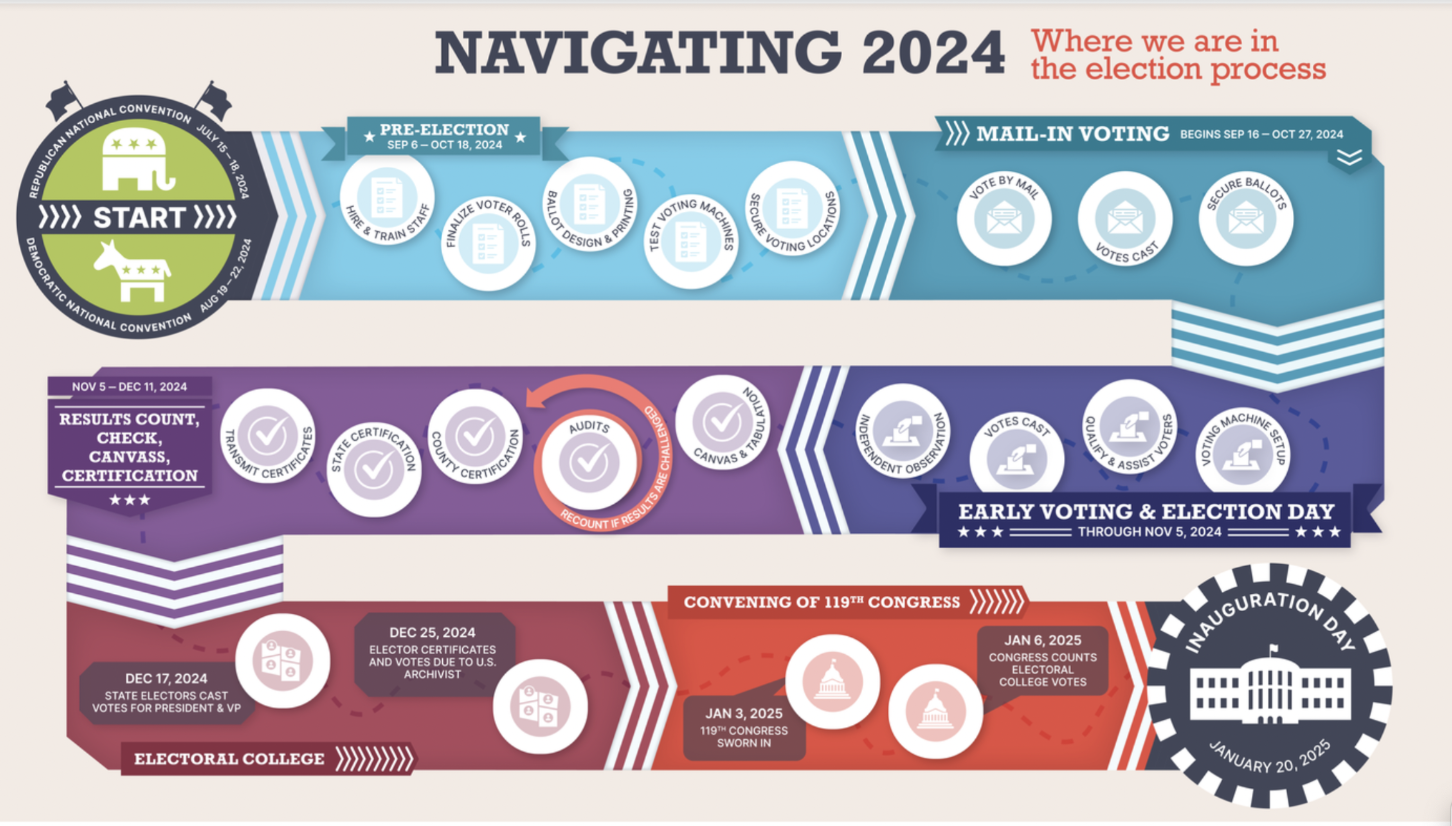Navigating Election Season: Guidance for Clergy and Congregations During a Time of Uncertainty
As we approach the highly contentious 2024 election, pastors and church leaders face unique challenges in guiding their congregations. With emotions running high, many people are looking to their faith communities for clarity, comfort, and a way forward. The role of clergy and churches during this period—leading up to Election Day and beyond—is critical.
WCC staff member, Rev. Breanna Illéné recently sat down with Rev. Dr. Leah Schade of Lexington Theological Seminary for a discussion of how clergy can help their congregations navigate this time of uncertainty and division. With heightened tensions, how do we respond with faith-centered messages that offer peace and hope?
Leaning Into Faith in Uncertain Times
In today’s politically charged environment, churches often find themselves at the heart of debates and disputes. While it may seem safer to avoid the topic of the election in church, silence could inadvertently send the message that faith has nothing to say about what matters most to people—families, communities, and society at large. It is crucial that churches engage in conversations about the election in a way that reflects our deepest values, particularly as we guide people toward being a "non-anxious presence" amid chaos.
Graphic from presentation by Chris Crawford at Protect Democracy
Educating Congregations About the Election Process
One way to build confidence and dispel anxiety is to clarify the election process. Churches and clergy can act as trusted messengers. This can include attending public tests of voting machines or ensuring that your church can serve as a polling place. Clergy can engage by educating congregants on their voting rights and processes, ensuring everyone feels empowered and informed. Clergy are invited to join WisAct and sign on as faith leaders promoting principles for trusted elections.
Key Messages for Ministers to Emphasize
It's important for clergy to root their sermons and discussions in biblical and theological principles. There are four foundational messages that clergy can use to guide conversations:
-Every Vote Must Be Counted
Stress the importance of ensuring that all votes are counted, drawing from the biblical belief in the inherent value and dignity of every individual (Genesis 1:26-27). The democratic process works best when all voices are heard.
-God Wants Us and Others to Be Safe
Congregations need to be reminded that God desires peace and safety for all. Violence or intimidation in the political process must be resisted with love, compassion, and non-violence. Mark 12:31 tells us to love our neighbors and all we do must be rooted in love.
-Our Words Matter to God
The words we use during this sensitive time can either build bridges or fuel divisions. As James 3:5-6 warns, our words have the power to set a "fire." Encourage congregants to speak truth with love and kindness.
-Hope in God's Continued Work
Even though the election might bring out both the worst and best in people, we can bear witness to the fruits of the Spirit. By providing support to voters or simply offering a space for peaceful reflection, churches embody God’s love in action.
Creating Safe Spaces for Post-Election Conversations
It’s vital for leaders to create an atmosphere where congregants can process their emotions in a holy space. In doing so, we must keep in mind that there are people living with the effects of political rhetoric that has authorized transphobia, misogyny, anti-Semitism, Islamophobia, fear of immigrants, violence, racism, and white privilege and so must do this work mindfully
Liturgy as a Sacred Holding Space
Churches have long provided comfort in times of crisis through liturgy and ritual. We are invited to lean into these ancient practices—such as prayer, song, or communion—to remind congregants of God's eternal presence.
The Church’s Work Continues
Regardless of the election's outcome, the mission of the church remains. Jesus’ call to care for the poor, the oppressed, and the marginalized does not change based on who holds political power. Churches must continue to be places of refuge, support, and healing.
In these uncertain times, clergy and congregants alike are called to be beacons of light and hope, reflecting Christ’s love and truth in the world. Stay rooted in faith, lead with compassion, and know you are not alone in this work. Together, we will navigate this time with grace, courage, and hope.
For more resources on how to engage your congregation during this election season, visit Wisconsin Council of Churches or Clergy Emergency League.



